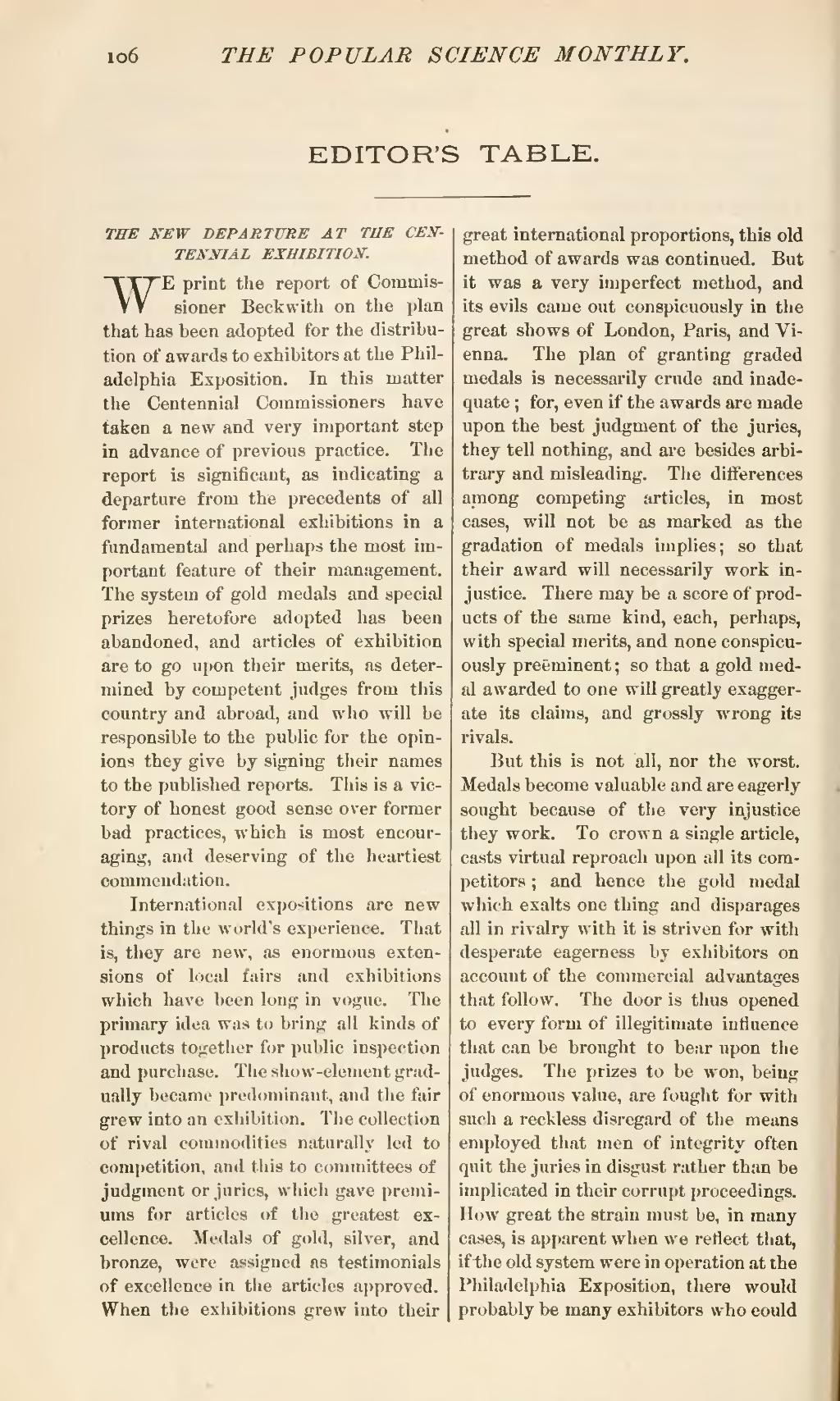THE NEW DEPARTURE AT THE CENTENNIAL EXHIBITION.
WE print the report of Commissioner Beckwith on the plan that has been adopted for the distribution of awards to exhibitors at the Philadelphia Exposition. In this matter the Centennial Commissioners have taken a new and very important step in advance of previous practice. The report is significant, as indicating a departure from the precedents of all former international exhibitions in a fundamental and perhaps the most important feature of their management. The system of gold medals and special prizes heretofore adopted has been abandoned, and articles of exhibition are to go upon their merits, as determined by competent judges from this country and abroad, and who will be responsible to the public for the opinions they give by signing their names to the published reports. This is a victory of honest good sense over former bad practices, which is most encouraging, and deserving of the heartiest commendation.
International expositions are new things in the world's experience. That is, they are new, as enormous extensions of local fairs and exhibitions which have been long in vogue. The primary idea was to bring all kinds of products together for public inspection and purchase. The show-element gradually became predominant, and the fair grew into an exhibition. The collection of rival commodities naturally led to competition, and this to committees of judgment or juries, which gave premiums for articles of the greatest excellence. Medals of gold, silver, and bronze, were assigned as testimonials of excellence in the articles approved. When the exhibitions grew into their great international proportions, this old method of awards was continued. But it was a very imperfect method, and its evils came out conspicuously in the great shows of London, Paris, and Vienna. The plan of granting graded medals is necessarily crude and inadequate; for, even if the awards are made upon the best judgment of the juries, they tell nothing, and are besides arbitrary and misleading. The differences among competing articles, in most cases, will not be as marked as the gradation of medals implies; so that their award will necessarily work injustice. There may be a score of products of the same kind, each, perhaps, with special merits, and none conspicuously preeminent; so that a gold medal awarded to one will greatly exaggerate its claims, and grossly wrong its rivals.
But this is not all, nor the worst. Medals become valuable and are eagerly sought because of the very injustice they work. To crown a single article, casts virtual reproach upon all its competitors; and hence the gold medal which exalts one thing and disparages all in rivalry with it is striven for with desperate eagerness by exhibitors on account of the commercial advantages that follow. The door is thus opened to every form of illegitimate influence that can be brought to bear upon the judges. The prizes to be won, being of enormous value, are fought for with such a reckless disregard of the means employed that men of integrity often quit the juries in disgust rather than be implicated in their corrupt proceedings. How great the strain must be, in many cases, is apparent when we reflect that, if the old system were in operation at the Philadelphia Exposition, there would probably be many exhibitors who could
